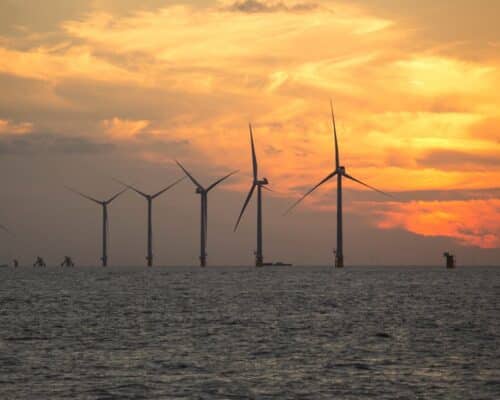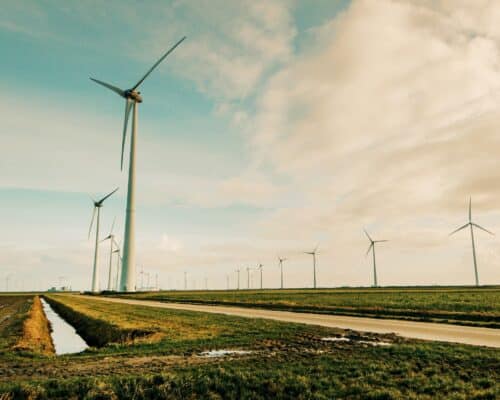UAE Names Oil Chief as COP28 President: What to Expect
Oil refinery in Dubai. Tavarius / Shutterstock.com
25 January 2023 – by Viktor Tachev
The 2023 United Nations Climate Change Conference, COP28 Dubai, will take place at Expo Centre Dubai in United Arab Emirates (UAE) from November 30- December 12, 2023.
While holding COP28 2023 in an oil state has angered some activists, the news that the COP28 president will be a figure from the Abu Dhabi oil industry has raised concerns about the conference’s real agenda. Considering that the previous COPs have raised more questions than answers, the outlook for COP28 UAE doesn’t look brighter. And the world simply can’t afford more backtracking – not when energy crises and climate disasters are influencing our day-to-day lives.
The Legacy of COP27 Egypt
In 2022, Energy Tracker Asia provided thorough coverage of COP27 Egypt – from the topics on the agenda to its outcomes.
In a nutshell, leaders went to Sharm El Sheikh, Egypt, to foster geopolitical stability and join forces to overcome the energy, food and climate crisis. They also had to respond to some of the world’s most vulnerable nations in regards to the climate situation.
However, after the climate talks ended, many were disappointed. The calls for decarbonisation and the need to reduce emissions by 2030 continued. However, new, meaningful solutions to the overarching problems were lacking.
Due to the significant presence of fossil fuel industry representatives and associated fossil fuel lobbyists, the lobby’s fossil fuel interests remained integral to the COP27 2022 climate change conference. Calls for a fossil fuel phaseout were blocked, while the number of new gas deals boomed.
The biggest highlight of the conference was the agreement on a loss and damage fund to support climate-vulnerable countries. While long overdue, the move, alongside the decision to reform multilateral development banks and global financing institutions, will help unlock much-needed funds to address the devastating consequences of climate change. The decision is crucial, but it is just the first step. Leaders must continue to build on this at COP28 Dubai.
COP28 UAE To Be Chaired By Abu Dhabi Oil Chief
COP28 is the third UN climate summit to be held in the Middle East after Qatar (2012) and Egypt (2022).
While this year’s host, the United Arab Emirates, has great potential for a green energy transition, it is currently far from being a green champion. For example, Climate Action Tracker ranks its efforts as highly insufficient.
The UAE is among the biggest oil producers globally. Furthermore, it has the fourth-largest carbon footprint per capita.
The country used the COP27 stage to make a number of announcements.
First, it announced a net-zero pathway by 2050, which set a time frame for its transition and identified the mechanisms for implementing its net-zero strategy.
At the same time, UAE President Mohammed bin Zayed al-Nahyan announced that his country would continue to supply oil and gas “for as long as the world needs“. He also said that oil and gas in the UAE were “among the least-carbon intensive around the world“.
Who is Sultan Ahmed Al Jaber? The COP28 President
While many hoped the UAE would make COP28 2023 a clean and renewable energy-first conference, the country announced Sultan Ahmed Al Jaber as the COP28 president. He is the CEO of the Abu Dhabi National Oil Company (ADNOC), the state oil company. However, he has served as UAE’s climate envoy and chairs the Abu Dhabi Future Energy Company (Masdar), a clean energy company. As a result, COP28 will mark the first time a serving oil executive will head a UN climate summit.
Sultan Al Jaber has previously stated that divesting from hydrocarbons to renewable energy too soon without adequate viable alternatives would be “self-defeating”. He also argued that the world needs a rise in annual fossil fuel investments of USD 600 billion until 2030. Furthermore, he has announced aspirations for ADNOC to double its output to 5 million barrels per day by 2030.
However, he has also promised that COP28 would be a conference of solidarity and admitted that the world is way off track regarding the Paris Agreement’s goal. Furthermore, Masdar has already developed a total clean energy capacity of 15 GW. By 2030, the company plans to increase it to 100 GW and to double the figure in the following years.
As US presidential envoy John Kerry noted, the COP28 president has a “unique combination” of roles. The question is: Which will be the leading one come November?
COP28 Dubai: Geopolitical Interests To Meet Climate Issues
After 27 climate summits, the world remains disjointed in its efforts to abandon fossil fuels. This was evident at COP27 through the presence of the fossil fuel industry. Compared to COP26, there were 25% more fossil fuel industry representatives. The contingent was bigger than any national delegation, except the UAE. The number of representatives also exceeded the number of delegates from the 10 countries most affected by climate change combined. According to Bloomberg, the situation has been long in the making. In the lead-up to the final days of COP27, oil and gas countries were preparing to push back against a potential final agreement calling for a fossil fuel phase-down.
However, COP28 will be more than just a climate conference. It will also be a crucial event for geopolitics.
The Guardian notes that the UAE hired PR firms to improve its climate reputation starting in 2021. Furthermore, the oil state is said to have significant political influence, not only on Egypt but also on decision-makers in politics and business. For example, a recent US intelligence document revealed that the UAE had used loopholes to steer the US political system and foreign policy in its favour.
Appointing an active oil boss as COP28 president has concerned environmentalists and climate analysts regarding the conference’s outcome.
To keep the 1.5°C target alive, the world needs a 43% emissions reduction by 2030 from 2019 levels. However, current national policies are on track to increase emissions by 11% by 2030 from 2010 levels.
As a result, COP28 will be a crucial moment for the credibility of the UN climate conference.
The COP28 President Sultan Ahmed Al Jaber Can Make History
Sultan Al Jaber has a chance to make history through his leadership of the conference. On one hand, he could prove the doubters right by backing the fossil fuel lobby’s interests. While on the other hand, he could back the clean energy transition, setting an ambitious precedent that may increase the momentum for climate progress.
OPEC has repeatedly said that consumers shouldn’t be pressured to relinquish hydrocarbon fuels if green options are unaffordable. However, the organisation can rest assured that renewables are already affordable. Two-thirds of the global population live in a country where either onshore wind or utility-scale PV is the cheapest source of new bulk electricity generation. Therefore, decarbonisation is the logical way forward.
Wood McKenzie’s analysts are also optimistic. The consultancy sees ADNOC and the UAE continuing to ramp up low-carbon investment to COP28, potentially making other Middle Eastern oil producers follow suit.
The UAE is in a unique position to make history. However, it is up to the country and the COP28 president to ensure the success of the conference.
by Viktor Tachev
Viktor has years of experience in financial markets and energy finance, working as a marketing consultant and content creator for leading institutions, NGOs, and tech startups. He is a regular contributor to knowledge hubs and magazines, tackling the latest trends in sustainability and green energy.
Read more




